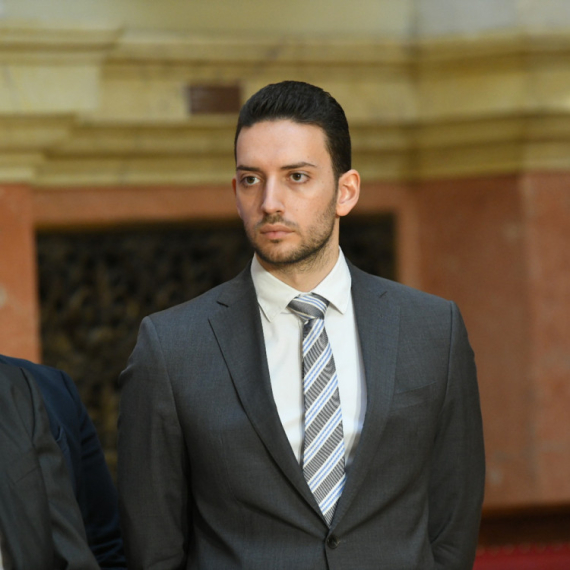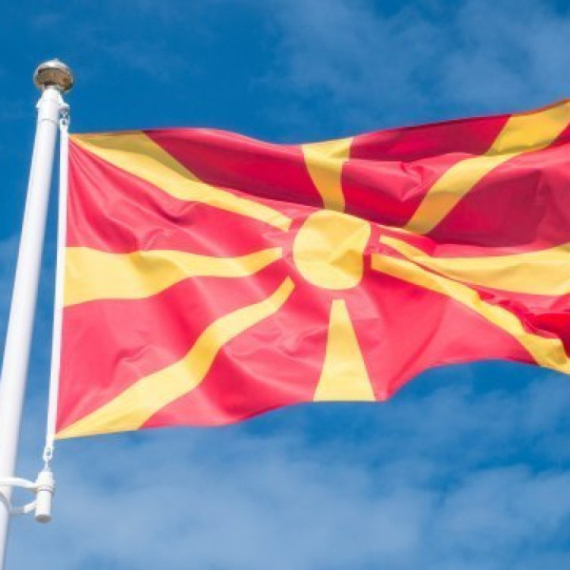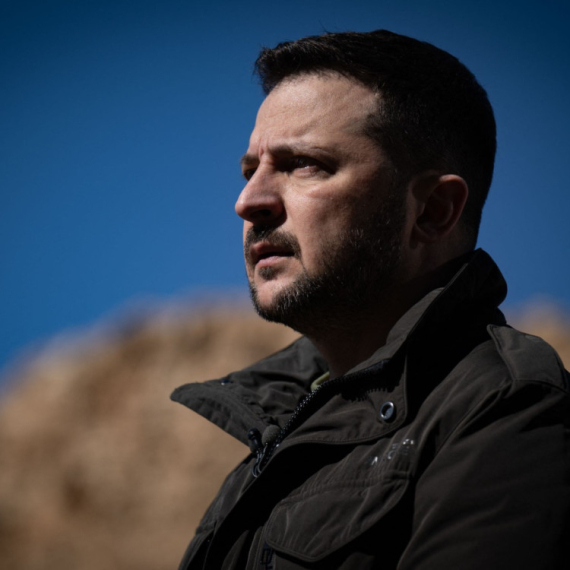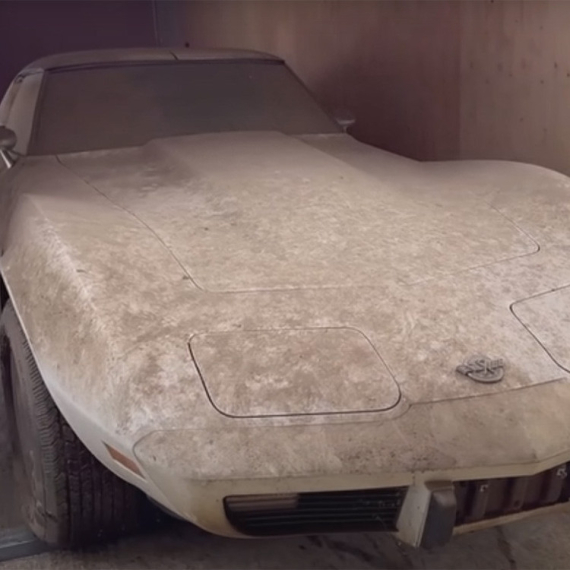"EULEX deal whether Priština likes it or not"
Kosovo Ministry State Secretary Oliver Ivanović says that an agreement with EULEX will be signed, regardless of Priština’s opposition.
Thursday, 10.09.2009.
09:18

Kosovo Ministry State Secretary Oliver Ivanovic says that an agreement with EULEX will be signed, regardless of Pristina’s opposition. EULEX has announced that talks are under way with the Serbian Interior Ministry over the signing of an agreement in the field of police cooperation. "EULEX deal whether Pristina likes it or not" Ivanovic told B92 that the agreement would be signed in spite of Pristina’s opposition, and that, moreover, other agreements should be signed. Agreements in the fields of justice and customs are being mentioned increasingly frequently. The state secretary said that these would be technical agreements. “From the very start, EULEX sought to cooperate with Serbia, as that was simply one of the main conditions for it to deploy throughout Kosovo. Therefore, the three aspects that EULEX covers—customs, police and justice—must be covered with some form of technical agreement,” he explained. “However, there’s a problem with the police agreement, as the Kosovo Albanians, for purely political and internal reasons, have opposed it. They certainly can’t prevent the agreement as it’s supported by the whole EU. Secondly, what’s very important is that the agreement is as much in the EU’s interests as Serbia’s,“ said Ivanovic. “In terms of justice, responses to three big questions need to be given—what laws are being applied here in Kosovo, what is the jurisdiction of the Mitrovica Municipal and District Courts, which itself raises the question of courts in other majority-Serb regions. Then there’s second-degree, third-degree protection, which is part of the agreement, and, finally, the issue of appointments of judges,“ said the state secretary. “These remained unresolved issues, and these issues must be defined, put on paper, and only then will we be able to discuss practical cooperation,“ he stressed. However, EULEX has stated that there are no indications that the technical agreements on customs and justice could be concluded any time soon. Oliver Ivanovic (FoNet, archive) "EULEX-Serbia deal not detrimental to Kosovo" British Ambassador to Kosovo Andrew Sparks says the agreement between EULEX and the Serbian Interior Ministry is not detrimental to Kosovo. “There’s been a lot of noise and speculation about the signing of this document, because, supposedly, EULEX will trample over Kosovo’s sovereignty. As a Briton, as a friend of Kosovo, I truly don’t believe that this document constitutes anything bad for Kosovo,” Sparks told Pristina media. According to Kosovanews, the ambassador said that the British government’s view was that this protocol did not constitute anything adverse for Kosovo. “All this racket in the media has assumed unnecessary proportions. Kosovo won’t suffer from this protocol because it’s a technical arrangement that will enable better cooperation with the authorities in Serbia regarding borders,” he explained. Sparks suggested that the protocol should be signed between EULEX and Serbia, as such an agreement could not be reached between Belgrade and Pristina since Serbia did not recognize Kosovo as a state. At the same time, the protocol would allow EULEX to suppress organized crime and other forms of crime, particularly in the north of the province. Senior Kosovo officials continue to oppose the protocol despite the EU’s reassurances. Local media claim that EU Special Representative to Kosovo Pieter Feith and U.S. Ambassador Christopher Dell are in permanent contact in order to find a solution that would be acceptable to Pristina.
"EULEX deal whether Priština likes it or not"
Ivanović told B92 that the agreement would be signed in spite of Priština’s opposition, and that, moreover, other agreements should be signed.Agreements in the fields of justice and customs are being mentioned increasingly frequently.
The state secretary said that these would be technical agreements.
“From the very start, EULEX sought to cooperate with Serbia, as that was simply one of the main conditions for it to deploy throughout Kosovo. Therefore, the three aspects that EULEX covers—customs, police and justice—must be covered with some form of technical agreement,” he explained.
“However, there’s a problem with the police agreement, as the Kosovo Albanians, for purely political and internal reasons, have opposed it. They certainly can’t prevent the agreement as it’s supported by the whole EU. Secondly, what’s very important is that the agreement is as much in the EU’s interests as Serbia’s,“ said Ivanović.
“In terms of justice, responses to three big questions need to be given—what laws are being applied here in Kosovo, what is the jurisdiction of the Mitrovica Municipal and District Courts, which itself raises the question of courts in other majority-Serb regions. Then there’s second-degree, third-degree protection, which is part of the agreement, and, finally, the issue of appointments of judges,“ said the state secretary.
“These remained unresolved issues, and these issues must be defined, put on paper, and only then will we be able to discuss practical cooperation,“ he stressed.
However, EULEX has stated that there are no indications that the technical agreements on customs and justice could be concluded any time soon.
"EULEX-Serbia deal not detrimental to Kosovo"
British Ambassador to Kosovo Andrew Sparks says the agreement between EULEX and the Serbian Interior Ministry is not detrimental to Kosovo.“There’s been a lot of noise and speculation about the signing of this document, because, supposedly, EULEX will trample over Kosovo’s sovereignty. As a Briton, as a friend of Kosovo, I truly don’t believe that this document constitutes anything bad for Kosovo,” Sparks told Priština media.
According to Kosovanews, the ambassador said that the British government’s view was that this protocol did not constitute anything adverse for Kosovo.
“All this racket in the media has assumed unnecessary proportions. Kosovo won’t suffer from this protocol because it’s a technical arrangement that will enable better cooperation with the authorities in Serbia regarding borders,” he explained.
Sparks suggested that the protocol should be signed between EULEX and Serbia, as such an agreement could not be reached between Belgrade and Priština since Serbia did not recognize Kosovo as a state. At the same time, the protocol would allow EULEX to suppress organized crime and other forms of crime, particularly in the north of the province.
Senior Kosovo officials continue to oppose the protocol despite the EU’s reassurances.
Local media claim that EU Special Representative to Kosovo Pieter Feith and U.S. Ambassador Christopher Dell are in permanent contact in order to find a solution that would be acceptable to Priština.


























































Komentari 20
Pogledaj komentare